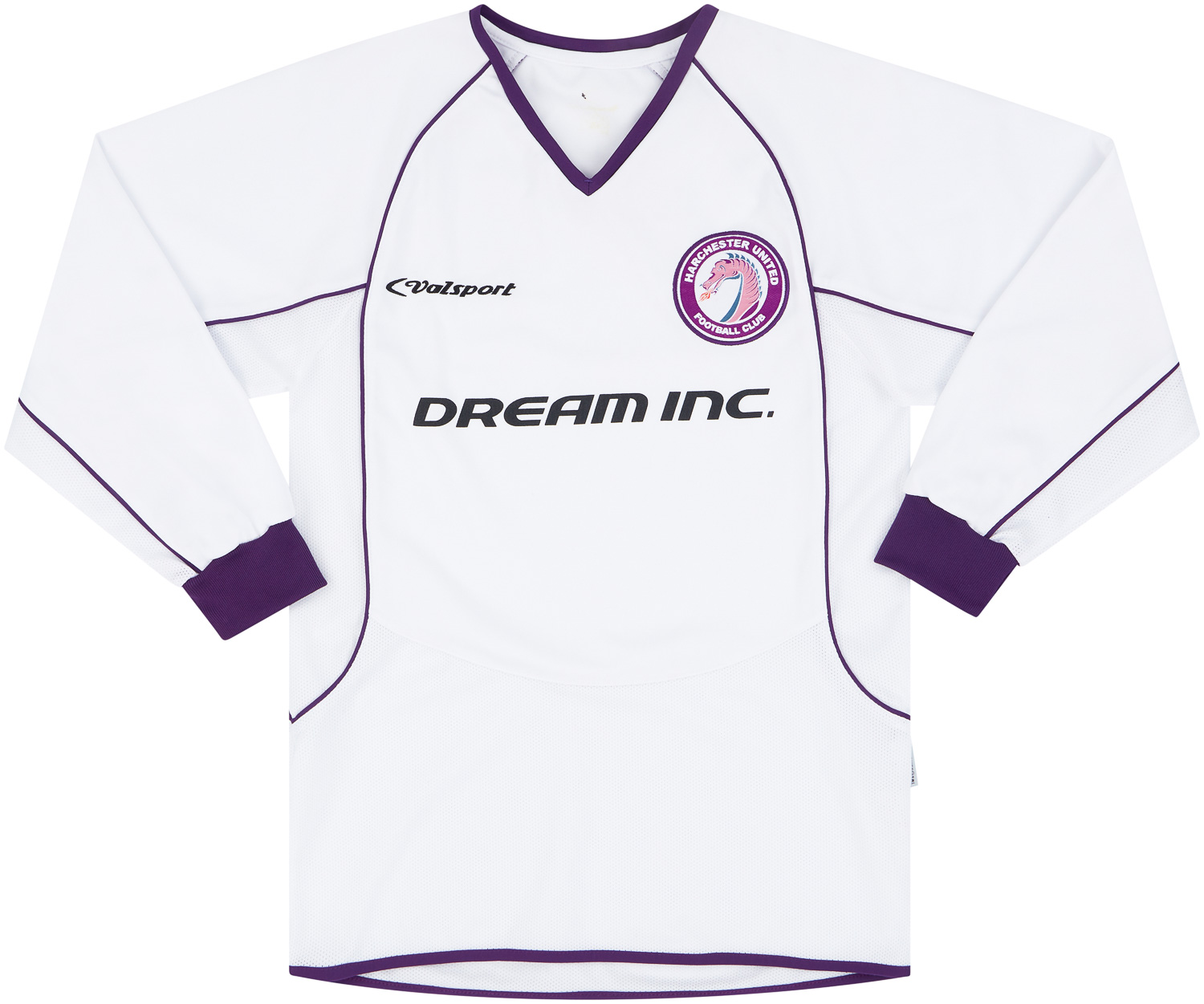Harchester United
Introduction Harchester United, a fictional football club prominently featured in the British television series “Dream Team,” has captivated audiences with its thrilling portrayal of life in the football world. Established as a team that symbolizes passion, rivalry, and the highs and lows of the beautiful game, Harchester United has become a cultural icon. With a […]
2002-03 Harchester United Away Shirt Fletcher #11 - 8/10 - (M)
118.99£ - ca: €140
2004-05 Harchester United Home Shirt - 8/10 - (L)
70.99£ - ca: €84
2004-05 Harchester United Away L/S Shirt - 8/10 - (XS)
47.99£ - ca: €57
Introduction
Harchester United, a fictional football club prominently featured in the British television series “Dream Team,” has captivated audiences with its thrilling portrayal of life in the football world. Established as a team that symbolizes passion, rivalry, and the highs and lows of the beautiful game, Harchester United has become a cultural icon. With a storyline that blends drama and sportsmanship, Harchester may not have existed in reality, but its influence on football fandom and storytelling is undeniable.
Club History
Harchester United was founded in 1997 as part of the narrative for the Sky One series, “Dream Team.” The club’s fictional origins are rooted in the vibrant landscape of English football, designed to capture the intrigue of both fans and those unfamiliar with the sport. Though not based in a real city, the club’s home ground, Harchester Stadium, was depicted as an arena filled with hopes and dreams, showcasing what it means to be a supporter of a football team.
Throughout its fictive history, Harchester United has been portrayed as a side that experiences the thrill of promotion, the agony of relegation, and the complex human stories of loyalty and betrayal. Notably, the show’s narrative arcs have included tumultuous ownership changes, clashes with rival clubs, and a fan base that remains fiercely devoted despite the club’s ups and downs.
Achievements
In terms of silverware, Harchester United is depicted as achieving notable success during its dramatic run on television. The club’s fictional accolades include multiple promotions to higher divisions, reflecting a trajectory that saw them rise from the lower leagues to the heights of the Premier League. Among the most highlighted achievements in the series was winning the coveted Harchester Premier League title in the 2005-06 season, showcasing the club’s fictional status as a competitive force in English football.
Furthermore, Harchester United participated in various fictional European competitions, with the club dreaming of continental success. One of the club’s most memorable moments included a dramatic run in the Champions League, illustrating the club’s aspirational journey towards representing not just themselves, but the ambitions of the local community. While these achievements were part of a scripted series, they resonated deeply with viewers, showcasing aspirations that many real clubs share.
Significant Players and Matches
The allure of Harchester United is largely enhanced by its compelling roster of characters and the intense matches depicted in the series. Key players like legendry striker and fan favorite, “Jules D’Abril,” and solid defenders like “Darren Sinclair” and “Benjie Williams,” became household names among fans of the show. These characters brought personality to the pitch and were often embroiled in storylines characterized by triumphs, heartache, and complex friendships.
Certain matches left a lasting impact on both the characters and the viewers, notably the “High Stakes Derby” against local rivals. The frenetic energy and dramatization around these matches captured the essence of football rivalry, showcasing the emotional investment of fans and players. Whether through last-minute goals, dramatic red cards, or incredible comebacks, Harchester United’s fictional matches echo the unpredictable nature of real-life football encounters.
Cultural Impact
The influence of Harchester United extended far beyond the screen. The club became a cultural phenomenon, representing the passion and fervor surrounding football in the UK. Fans were drawn to the drama and the relatable emotions portrayed through the storyline, leading to a dedicated following that helped cement the series’ place in television history.
As the episodes unfolded, Harchester also made a significant impact on football culture, touching on real-world themes such as player transfers, contract negotiations, and the politics of football ownership. This created a robust discourse among viewers about the realities of the modern game, inspiring discussions and debates within the fan community.
Harchester’s fans, often passionate and loyal, often found themselves forming bonds over shared enthusiasm, resembling the camaraderie seen in real-life football fandoms. The community surrounding Harchester United exemplifies how sporting narratives, even fictional ones, can foster an inclusive culture that transcends the sport itself.
Conclusion
In conclusion, Harchester United may be a creation of fiction, but its impact on football history is substantial in terms of cultural representation and storytelling. Through its exhilarating matches, memorable players, and significant achievements, the club stands as an emblem of football’s universal appeal. It celebrates both the triumphs and trials that characterize the sports world, offering fans a glimpse into the dreams and drama that unfold in the life of a football club. Harchester United remains a symbol of what it means to dream big, whether in front of the camera or on the pitch, illustrating the essence of football fandom that lives on—both on and off-screen.


